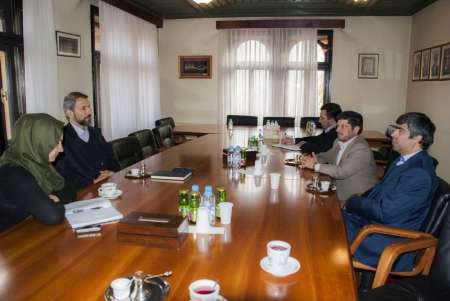Note: The name of the program has been changed in February 2015. The old name, MA in Central European History would continue to apply to those enrolled before fall 2015.
بورسیه کارشناسی ارشد تاریخ، دانشگاه مرکزی اروپایی، مجارستان

Accreditation
The one-year Master of Arts degree in Central European History was first launched at CEU in 1992. It is registered by the Board of Regents of the University of the State of New York (US) for and on behalf of the New York State Education Department, and is also accredited as “further professional training” (“szakirányú továbbképzés”) by the Hungarian Accreditation Committee.
Who should apply?
The one-year MA program is a very intensive one, designed for applicants with four or five years of previous university education. Having an undergraduate degree in history is an advantage, but the department also welcomes applications from students in other social science and humanities disciplines and will decide on a case by case basis whether the latter can be accepted in the one-year program, or would be better advised to pursue the two-year program. Holders of three-year BA degrees should apply for the two-year program.
Entry requirements
In addition to meeting the general CEU admissions requirements, applicants must provide a ۵۰۰-word research proposal for the MA thesis (see sample proposal ۱ and sample proposal 2), which will be weighted heavily in the admissions decision. The topic is expected to fall within the broad thematic focus of the department, and should be delimited and set out with the greatest possible clarity. Previous work on the subject should also be indicated.
Applicants should also upload a brief, supplementary statement of purpose that explains their interest in our Department. In the statement of purpose applicants can indicate which courses, professors, and research areas they see as especially relevant to their interests. Applicants who consider pursuing one of the specializations and advance certificates offered by the department should also indicate this in the statement of purpose.
Program structure
In accordance with the CEU academic calendar the History Department offerings are divided into a Pre-Session (2 weeks: September), the Fall term (12 weeks: late September to December), the Winter term (12 weeks: January-March) and a Spring Session (10 weeks: April-June). The Pre-Session (general orientation about the university and about the curriculum) is designed to introduce students to resources both within CEU and in Budapest. The Fall and Winter terms consist of intensive coursework and lay the groundwork for the Master’s thesis. For the one-year MA the Spring Session is largely research-oriented. During April students do fieldwork or archival research. The university provides modest grants to assist students in accomplishing their research (in early February, information is made available about the application procedure for these grants). After the research break, there is an optional educational trip to Vienna. In May all students return to CEU to consult with their thesis supervisors, participate in workshops with faculty and fellow students to present their projects, and complete their theses by the second week of June.
Workload and graduation requirements
In order to graduate, one-year MA students must earn 40 credit points, out of which 2 are obtained by attending the spring thesis workshops and 8 for a successfully defended thesis. The remaining 30 are course credits, as detailed in the Curriculum. One course credit equals one hour (50 minutes) of classroom attendance per week over a 12-week long academic term. History Department courses are usually 2 or 4 credit courses (i.e., two or four hours per week for a term), with proportionate reading assignments and other requirements which altogether demand a time investment of c. 3 times as much as the number of class contact hours.
In the one-year MA, the only mandatory courses are the one in historiography (4 credits, fall term) and in academic writing (2 credits in both the fall and winter terms). The remaining 20 course credits can be collected in elective courses, mainly from the wide-ranging offer of the History Department, but bearing in mind that it is possible to take a limited number of cross-listed courses from other CEU departments as well. While students thus have significant latitude to construct their personal curriculum, in order to achieve a proper balance and range within their training in history, they are also strongly encouraged to look beyond the scope of their thesis research in selecting their courses. The MA Program Director, their supervisors and other faculty assist them in making a selection that is best suited for both their specific field of research and the program’s aim of comparative training.
The MA Thesis
Each student is required to write a 15,000 word thesis based on original research. Students are expected to indicate their proposed thesis topic in their application but this topic can be refined and developed during the coursework. The research component will be especially enhanced by knowledge of some type of available primary resources, whether archival documents, prospective interviews and fieldwork, or periodical collections. Detailed information concerning the thesis is provided in the latest MA Thesis Guidelines.
 کنکوری کنکوری تدریس معلم خصوصی در منزل از ابتدایی تا دبیرستان ریاضی فیزیک زیست در تهران
کنکوری کنکوری تدریس معلم خصوصی در منزل از ابتدایی تا دبیرستان ریاضی فیزیک زیست در تهران
